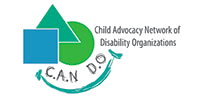What is Developmental Delay?
From birth, there are several things babies learn to do, such as smile, turn over, respond to and communicate with people, eat solid food, crawl, stand, etc. The timetable for babies to learn these skills are called ‘Developmental Milestones’, and although children do not learn these skills at the same space, they usually follow a normal variation. However, when a child does not reach their development milestones at the expected times, within the age range of that normal variability, it is known as Development Delay, and this is often a diagnosis made by a doctor based on strict guidelines. It is important for a development specialist to identify that the delay is not just a temporary lag.
The development within the first three years of a child’s life stays with the child for a lifetime. It is therefore very important to look for delays in development since the sooner the child gets early intervention, the better the progress will be.
There are five major groups of skills that make up the development milestones. These include Gross Motor Skills (using large group of muscles for bigger movements such a sitting and rolling over), Fine Motor Skills (using smaller muscles for smaller movements such as holding a spoon), Language Skills (speaking, communicating), Cognitive Skills (thinking skills such as learning, understanding, problem solving, reasoning, remembering) and Social Skills (interacting with others, cooperating and responding to the feelings of others). Developmental Delays could occur in one or more of these areas. A delay in one area may happen along with a delay in other areas. For example: difficulties in speech and language could be accompanied by a delay in social or cognitive skills.
Developmental Delays can have many ailments, including genetic causes such as Down Syndrome, or complications of pregnancy and birth such as prematurity or infections. If treated early, it is possible to reverse some causes such as hearing loss from chronic ear infections. Some environmental risk factors could also cause developmental delays, and these include harmful agents such as lead, severe poverty and poor nutrition.
Signs and Diagnosis
In some instances where developmental delays are suspected by the parents, the pediatrician might suggest giving the child more time to develop. This is because many children show sudden bursts in development, instead of slow, steady growth.
Usually there is a range of several months within the normal variability where a child is expected to learn new skills. If the normal range for learning to walk is within nine to fifteen months, and if the child isn’t walking by twenty months, this could be considered a development delay.
The development evaluation carried out by a professional would help list the child’s strengths and weaknesses, and identify if early intervention services are required.
Treatment
Early intervention services for children with Developmental Delays could include Assistive technology or devices a child could use, speech and language services, medical and nursing services, nutrition services, counseling and training for the family, behavior therapy, occupational therapy and physical therapy as well as psychological services. It is essential for all children with Developmental Delays to have their hearing and vision tested to avoid untreated visual or hearing impairments.
With the right treatment plan, most children with developmental delays should progress in their development, although the rate and extent of the progress depends on the underlying condition. Whilst some children might catch up with their development over time, others may have disabilities that continue into their adult lives. Similarly, many may be independent in their function, while some may need limited support and others, extensive support, depending on the extent of their disabilities.
Source:
http://www.med.umich.edu/yourchild/topics/devdel.htm
http://www.parentcenterhub.org/repository/dd/
http://www.mychildwithoutlimits.org/understand/developmental-delay/
